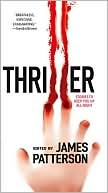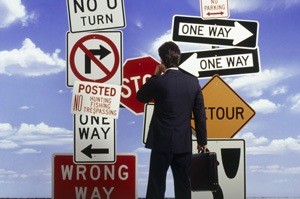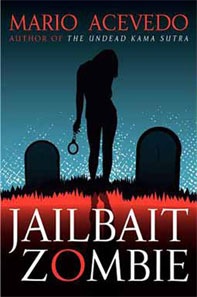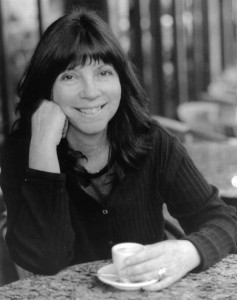 The Kill Zone just loves it when guest bloggers visit, especially when their posts provide an inside glimpse of the industry. So when Cara Black offered to rake her publicity and marketing directors over the coals for us, we applauded her (from a safe distance). Courtesy of Cara and the lovely people at Soho Press, today we’re bringing you answers to some of the pressing questions you’ve always wanted to ask but were afraid to…
The Kill Zone just loves it when guest bloggers visit, especially when their posts provide an inside glimpse of the industry. So when Cara Black offered to rake her publicity and marketing directors over the coals for us, we applauded her (from a safe distance). Courtesy of Cara and the lovely people at Soho Press, today we’re bringing you answers to some of the pressing questions you’ve always wanted to ask but were afraid to…
Thanks for inviting me Michelle! I know the most important thing is to write the best book you can. Then rewrite, rewrite, rewrite as Voltaire said. But after the real work is done and the manuscript has been accepted, copy edited, and slated for publication, what happens after that? I’ve often wondered, and have frequently been asked the same question at conferences. So I thought I’d ask the experts, in this case Soho Press, who publish wonderful books (and mine, too).
I love my publisher and I know they share the love. We’ve been together for nine books over ten years. Soho is a fiercely independent book publisher, based in New York, and their specialty is crime fiction from around the world. The Wall Street Journal has described Soho’s books as, “Some of the most exotic crime fiction in the world.”
But I thought I’d use this opportunity to rake them over the coals, grilling them about what we all want to know: how do the publicity and marketing director of a publisher—in this case mine —promote, market and sell a book? Something that, as either pre-published or published writers, we’d all like to know, right?
I think the answers and insights will prove universal and, hopefully, helpful. So now with my ninth book, Murder in the Latin Quarter, available this week—yes, 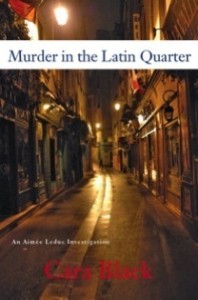 this week-I thought I’d politely ask them about what the heck it is they do. I know it’s not a fluke that Soho authors are regularly reviewed by the New York Times and interviewed on NPR. So I spoke with Sarah Reidy, Soho’s publicity director, and Ailen Lujo, their marketing director, both superstars in my book.
this week-I thought I’d politely ask them about what the heck it is they do. I know it’s not a fluke that Soho authors are regularly reviewed by the New York Times and interviewed on NPR. So I spoke with Sarah Reidy, Soho’s publicity director, and Ailen Lujo, their marketing director, both superstars in my book.
Cara Black: Can you describe a sales conference? It’s a mystery to me…who’s there? I’ve heard that the chains can decide a book cover.
Sarah Reidy: A sales conference is basically a meeting in which we (publicity, marketing, and editorial) present our upcoming list (of books) to the sales force. The sales team consists of all the wonderful people who are responsible for actually getting your book into stores. They take the information we give them and share it with Barnes & Noble, Amazon, Borders, Baker & Taylor, Ingram, and all the great indie stores out there. In terms of book jackets, that’s usually determined at pre-sales. I’ll let Ailen explain that one.
Ailen Lujo: In regard to presales: Twice a year an editor and I fly out to Minnesota where our distributor consortium is based, and we introduce our potential titles to the sales and marketing staff. In many ways this meeting is even more important than the actual sales conference because we talk about the minutest details of the book, from price and format (should we do this as an original paperback or hardcover?) to book jacket designs. If our account reps hate a jacket, we go back to the drawing board. We present titles at sales conference. We discuss titles at presales.
CB: What about blogs? Conferences? Bookstore events? How effective are each or do you recommend a combination?
SR: Oh, my. This is one of those questions that really depends on the author. I think blogs are great, and there is such a variety out there almost everyone can find a good match for him or herself. There are straight review blogs, of course, but there are also a number of blogs that do author Q&A’s, accept guest blog posts, or will post podcasts and book trailers. In addition, there are blogs that serve as extensions of “traditional” media outlets, such as Papercuts (The New York Times), Jacket Copy (Los Angeles Times), NPR.com, and Washington Post Live Online. This is a market that is constantly growing and offering more opportunities. For any author, I would recommend researching literary blogs and reading them for examples and ideas. Once you get a feel for a blog, you can start coming up with ideas about how your book could fit in.
Specialized conferences are wonderful. As Cara knows, Ailen and I are both huge fans of Bouchercon for mystery authors. It’s such a close knit community, and it feels like every attendee is there for the love of a good novel. If you are a less well-known author, I think conferences and conventions are a much better option that a traditional book tour.
Bookstore events are good in some cases, and not in others. If you’re Tori Spelling or John Grisham, you should absolutely do bookstore events. People are going to turn out to see you no matter what. You lucky son of a guns. However, if you are a debut novelist with no real connection to a location, it’s hard to turn people out for these. Instead I typically recommend doing one big event in your home town, and perhaps somewhere else where you have a large community of family and friends who will come.
You should also look into reading series. There are some great series out there that set up a night with multiple authors…often at a bar! And everyone knows that drunk people are more likely to buy books (I just made that up, but I imagine it could be true). A reading series tends to have a built-in following, so it’s a good way to expose your writing to a new group of people.
Cara here. I really appreciated Sarah and Ailen taking the time to answer questions.Hopefully this parted the mist of publishing marketing and publicity somewhat. Does this mirror some of your experiences? Or does your publisher do things differently?
Cara Black writes the award nominated Aimée Leduc Investigations set in Paris. MURDER IN THE LATIN QUARTER, the ninth book in the series, was just released and is available online and at fine bookstores everywhere. In MURDER IN THE LATIN QUARTER, Aimée travels to the Left Bank unraveling the trail of a woman who claims to be her sister, murky Haitian politics and international financial scandals that lead to murder.
~~~~~~~~~~~~~~~
CALENDAR OF UPCOMING GUESTS
Mark your calendar for the following guest bloggers at the Kill Zone:
Robert Gregory Browne, March 15
Neil Plakcy, March 22
Liz Jasper, March 29






